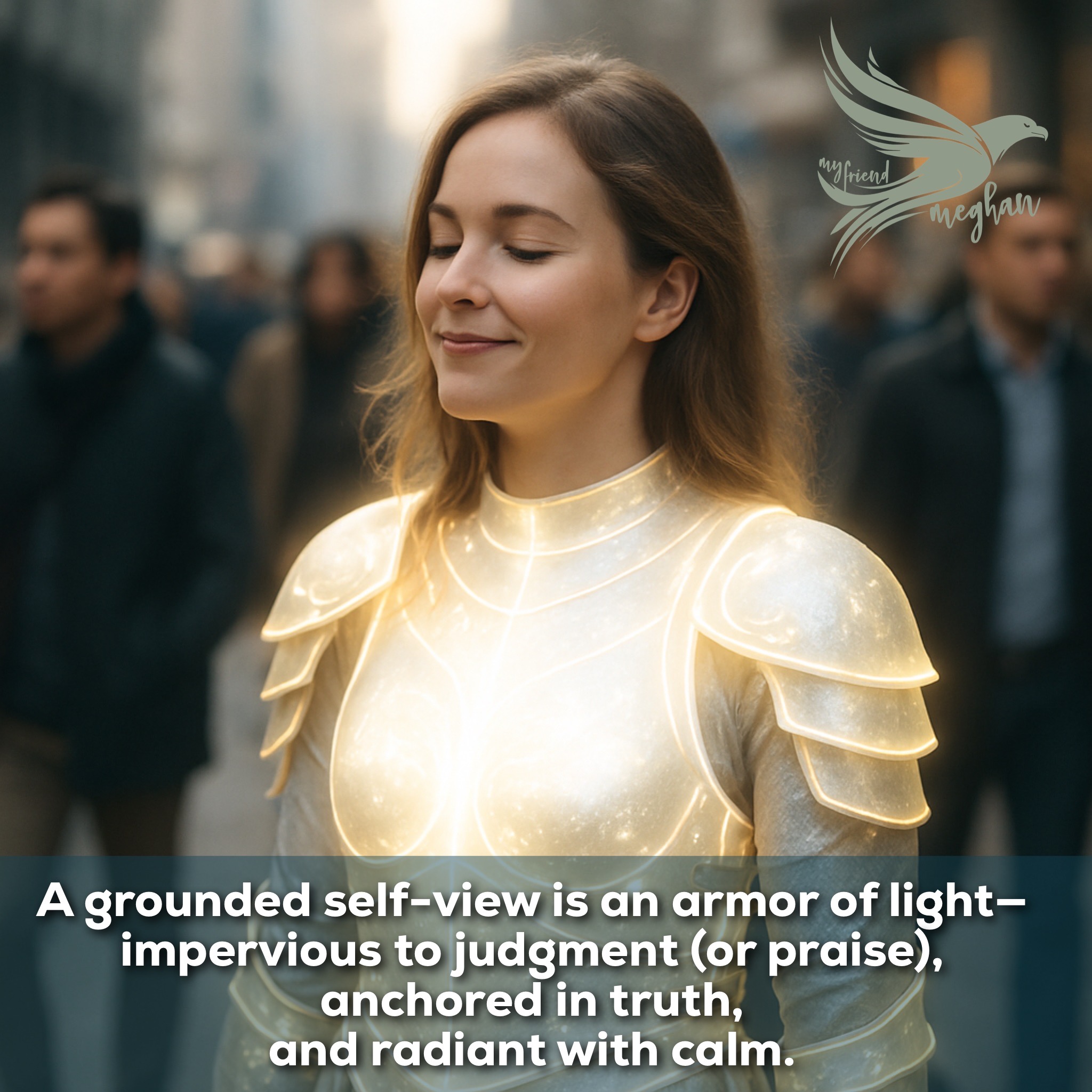Praise can feel like sunlight—until it disappears and you’re left in the cold. When our sense of self depends on outside validation, we become vulnerable to every passing opinion. The alternative? Rooting your self-perception in a grounded, internal truth that doesn’t shift with the wind.
Judgment as a Reflection of Self
Judgment can sting for many reasons—because it echoes a belief we secretly hold, reopens an old wound, or simply misrepresents who we are. If someone calls me “purple”—I know I’m not—so while it might frustrate me (especially if they’re unwilling to see the truth), it’s not likely to cut deep, because it doesn’t land in the same way as something that echoes an internal wound. What hits harder is when a comment touches a sore spot I already carry—some internal doubt or judgment I hold about myself that I haven’t resolved. That kind of sting is an invitation to pause and explore what’s really happening inside.
This is where healthy boundaries come into play. Your sphere of influence includes your thoughts, actions, and responses. The judgments and perceptions of others belong to them, not you. If their words don’t reflect your truth, you don’t have to receive them. Simply recognize it’s their issue.
But judgment isn’t the only outside voice that can affect us—sometimes, it’s the kind words that cause the most distortion. Praise can feel good in the moment, but when we begin to rely on it, our sense of identity becomes just as vulnerable. That’s why it’s important to explore how both ends of the spectrum—judgment and praise—can shape our self-perception if we’re not firmly grounded in our truth.
Praise and Criticism: Two Sides of the Same Coin
There’s a principle I learned years ago: if you let yourself be moved by the praise of people, you will also be moved by their criticism. If positive input from others gives you a boost, the absence of it (or the presence of criticism) can just as easily bring you down. People’s opinions are fickle. If your confidence rises and falls based on them, your sense of self will never be steady.
Anchoring in your personal truth means knowing what you believe about yourself and refusing to let that be dictated by external approval. Your value doesn’t come from others’ applause, and it’s not diminished by their disapproval.
But where do these patterns begin? Our tendency to seek validation—or to crumble in the face of disapproval—often has roots that go much deeper. Before we ever consciously chose how to see ourselves, many of those lenses were handed to us.
The Influence of Early Conditioning
From childhood, we absorb societal norms, family biases, and cultural expectations before we have the awareness to question them. These inherited beliefs can linger for decades, quietly shaping how we see ourselves and respond to others. Shadow work—taking time to examine and release what no longer serves—helps us sort through what we’ve been carrying.
I’ve likened this to cleaning out a cluttered space. Some things may have had value once, but no longer fit who we are today. Letting them go makes space for beliefs that align with our current truth.
The process of releasing these old influences empowers us to be more intentional in the present. Once we’ve cleared out what no longer serves, we’re in a better position to consciously choose how we respond to others. That’s where perspective comes in—not just how we see a situation, but the energetic direction we choose to flow.
Choosing Your Perspective
When someone says something devaluing—like implying your work isn’t worth the price—it’s easy to internalize it. But often, what they’re really expressing is their own limitation or lack of understanding. If you take it personally, you hand them the power to define your worth. If you don’t, you keep that power for yourself.
Choosing your perspective means recognizing when a comment is rooted in someone else’s bias or unexamined beliefs. It also means giving yourself permission to walk away from those opinions without carrying them as your own.
This is where polarity comes in. You’re not just choosing whether to believe them or not—you’re choosing which direction to lean: will you move toward constriction, self-doubt, and fear? Or will you align with your truth, affirm your value, and maintain an expectation of good? That conscious choice of direction is what determines the energy you carry forward—and whether you elevate your thought or allow it to sink into stagnation. It’s a choice you always get to make.
An Armor of Light
When you deeply know who you are—and understand your oneness with Source—you create an internal strength that is unshakable. In that state, judgments and criticisms ping off you without penetrating, because they don’t match your truth. This isn’t about denial; it’s about clarity. You know who you are, and that knowing acts as an armor of light.
I’m not claiming to live in that space all the time, but it’s a goal worth working toward. The more we root ourselves in our truth, the less power external voices have over us.
Actionable Insights
- Notice when judgment stings. Ask yourself if it’s touching on a belief you already hold about yourself.
- Stay anchored in your truth. Don’t let praise inflate your worth or criticism deflate it.
- Question inherited beliefs. Consider whether early conditioning still aligns with who you are today.
- Choose your perspective. Decide which opinions you allow to shape your self-perception.


Leave a Reply